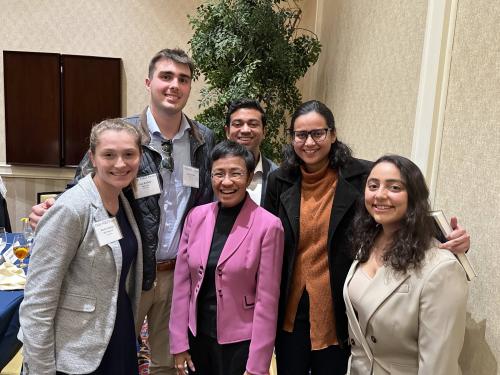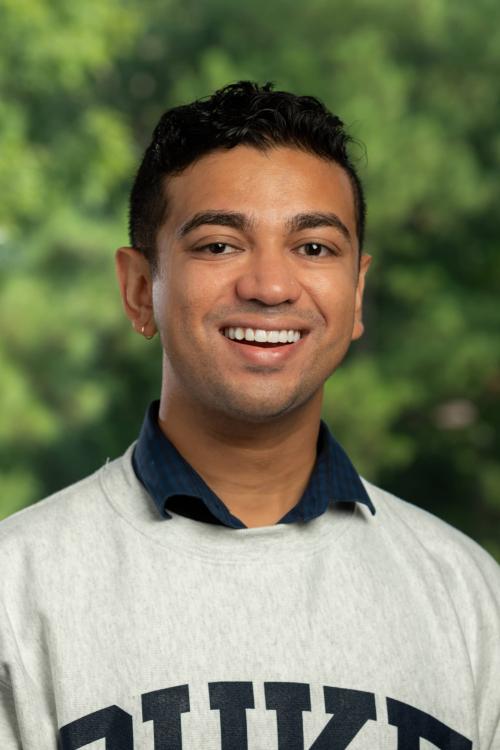

By Shezaz Hannan MPP’25
The dangers of misinformation have become increasingly apparent over the past few years. Whether it’s misinformation about vaccines that sparked a societal debate amidst the COVID-19 pandemic or false narratives about political figures, the consequences of misinformation can be severe.
Misinformation can also be a tool for those in power to perpetuate narratives that strengthen their power. In her recent Rubenstein Lecture, Maria Ressa chronicled the challenges she faced in reporting the truth as a longtime broadcast journalist and as the co-founder and CEO of Rappler, an online news outlet based in the Philippines. In her quest to report news truthfully and reach young audiences online (the median age of Filipinos is 23), Ressa has been met with fierce resistance from the government of the Philippines under Rodrigo Duterte, including being arrested multiple times.
Still, Ressa and her colleagues at Rappler have continued in their fight for press freedom. Throughout her talk, she stressed the importance of questioning the narratives we are fed in the media, especially those that come from our governments. She also discussed the good and bad roles of technology in fighting misinformation. Social media platforms are often built to prioritize engagement. Consequently, they amplify content that is engaging, though not always honest. Users must be aware and challenge themselves to investigate the content they see, asking themselves those important questions about the narratives they engage with. But technology companies must also act to create products and business models that don’t perpetuate misinformation harms on their users.

During my time at Sanford, I have been engaged in research on understanding how platforms treat content related to sensitive issues such as reproductive health and how to hold platforms accountable. Ressa’s discussion emphasized the importance of that work; we must continue to examine how the media we interact with daily is impacted by the decisions taking place within technology companies and governmental institutions.
At a dinner after her talk, Ressa was asked about the role of children of immigrant diasporas in combating misinformation often circulated amongst immigrant parents, both about their home country and the United States. This topic resonated with me as a son of immigrants from Bangladesh – I frequently find myself pushing back against news and information my parents hear from their friends through social media platforms such as Facebook and WhatsApp. Ressa emphasized the duty we have not only as children but as global citizens to make sure our families and our broader networks understand that misinformation is prevalent, dangerous and purposeful. All of us must continue to be critical of the information we digest and work to fight against misinformation.
Shezaz Hannan MPP’25 is a first-year Master of Public Policy and Master of Business Administration dual-degree student. He received his undergraduate degree in Chemical Engineering from the University of Texas at Austin. At Sanford, he focuses on technology policy issues, including platform accountability, digital equity, data privacy and cybersecurity. He is broadly interested in ensuring technology is built to minimize harm to consumers and society and hopes to continue that work within the technology industry after graduation.
Journalist and Nobel Peace Laureate Maria Ressa Believes in the Power of Constructive Action
Maria Ressa is the first journalist to win the Nobel Peace Prize since 1935. In her talk, she described her fight against false reporting and corruption, which landed her in jail, and discussed the effect of Big Tech on journalism and democracy.